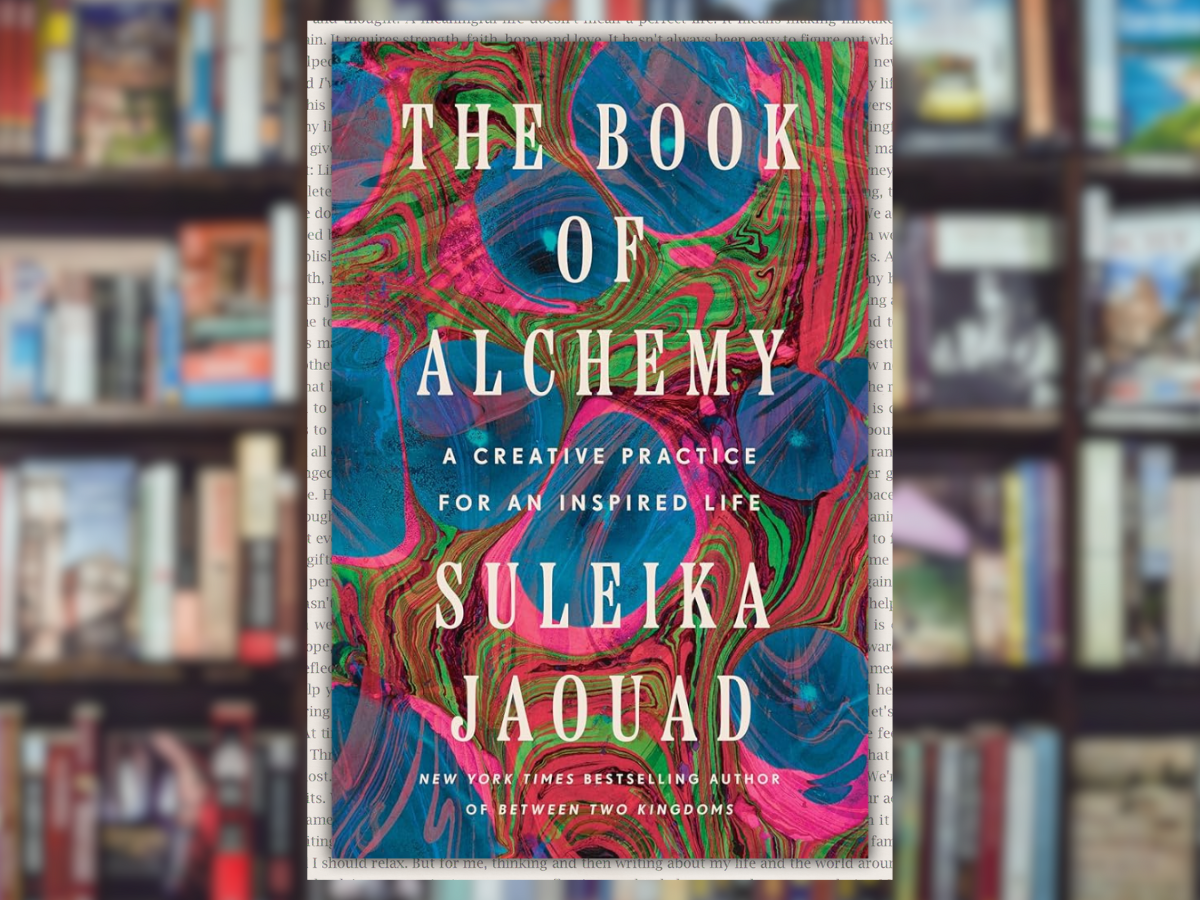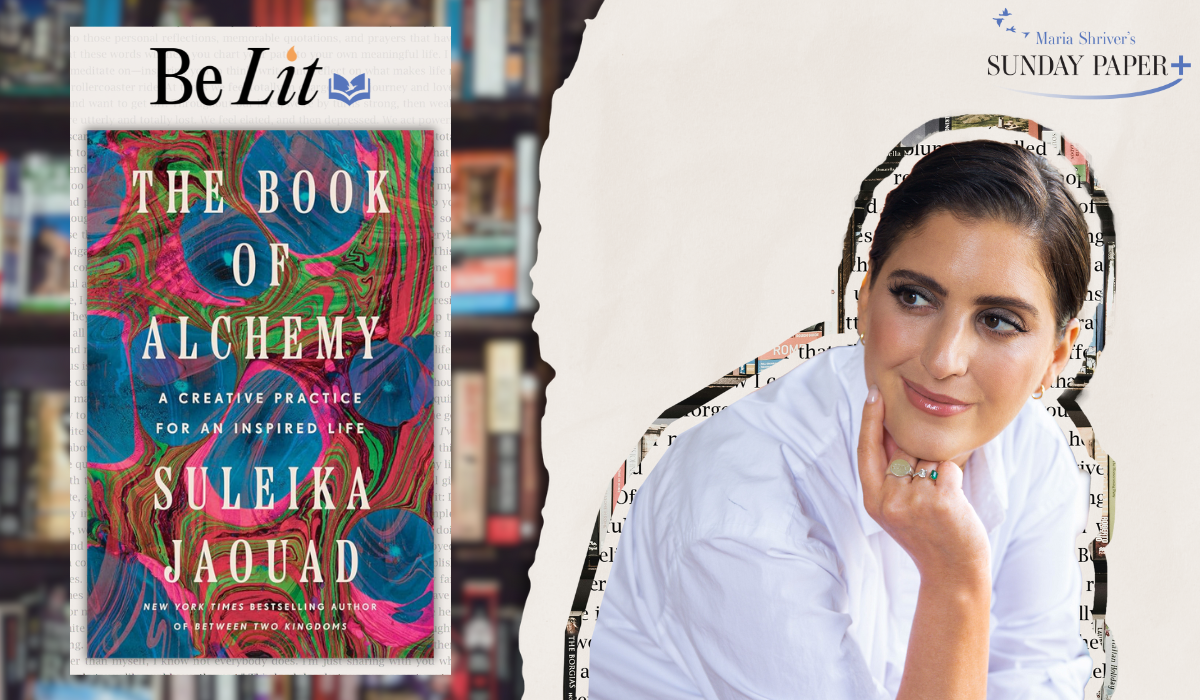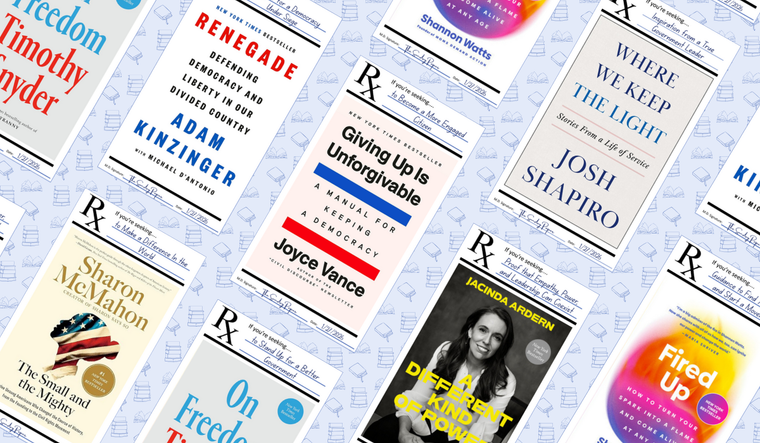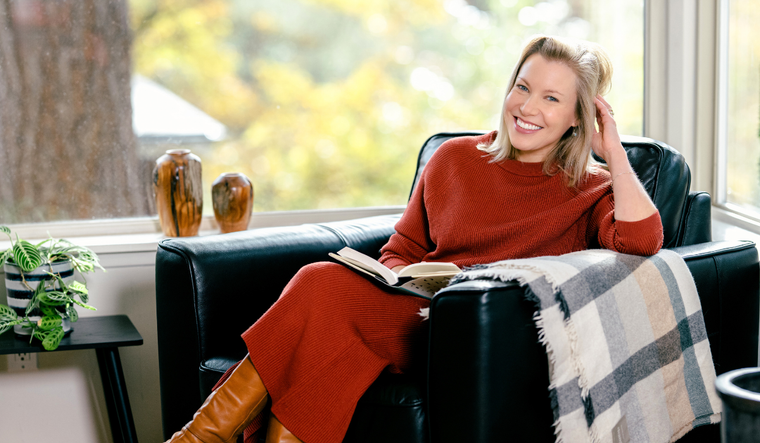Be Lit with Suleika Jaouad: An Excerpt from “The Book of Alchemy”
Who
Suleika Jaouad is a visual artist, bestselling author, and Emmy Award-winning journalist. Along with her husband Jon Batiste, she is the subject of the Oscar-nominated documentary American Symphony.
What
The Book of Alchemy is your companion through new beginnings, love, loss, and rebuilding. Jaouad has gathered wisdom from one hundred writers, artists, and thinkers in the form of essays and writing prompts to explore the art of journaling. Their insights invite us to inhabit a more inspired life.
Why
Suleika says, “The Book of Alchemy is a culmination of a lifetime of cultivating a daily creative practice, which I credit with helping me be less world-weary, more full of wonder. We live in a time that is so fast-paced and frenetic with uncertainty. My greatest wish is that this book will provide readers with the tools to transform life’s interruptions into new beginnings by tapping into that mystical trait that exists in every human: creativity.”
& We
…chose The Book of Alchemy because we believe there is magic in excavating your true self on the page—Suleika Jaouad shows us the way. Enjoy!
Here’s Your Exclusive Excerpt

I’m fascinated by people who pick up a creative practice later in life. Many of us feel that, as time passes, certain prospects are foreclosed upon. You turned right at the fork in the road, and you can’t go back—your life must plod along that same path. As Robert Frost wrote, “Way leads on to way.” But then I think of someone like my realtor turned beloved friend Barbara, who at the age of seventy began making ceramics.
Barbara lived most of her life in Manhattan, so when she retired from her career as a police detective and moved to the New Jersey countryside, she found the lifestyle slow and somewhat isolating. A second career in real estate gave her a foothold. She learned the area, and she met people, including a woman who owned a ceramics studio on the town’s main street.
Barbara hadn’t taken an art class since high school, but she decided to invite seven friends to join her in a beginner’s ceramics course. We started by making pinch pots and bowls, and most of us struggled—but Barbara proclaimed herself the worst. Finally she declared she was not going to make “another damn bowl,” which no one contradicted because no one contradicts Barbara. “My hands don’t want to make bowls,” Barbara said. “They want to make faces.”
Looking back, I see that Barbara was listening to her intuition. How often we ignore that voice that tells us what we want or need, what will bring us peace or comfort or joy. Often it’s drowned out by other voices, by societal expectations, by our own belief that we have to follow the rules, be good—even perfect.
So Barbara began sculpting human faces, teaching herself by trial and error. Weeks passed, and her faces grew necks and ears; their eyes opened. She also noticed a change in herself. “From being a cop, I always watched people—mainly their hands, for self-protection,” she said. “Now I look at their foreheads, how far back their ears are, whether their nose is thin or fat.
“It’s like you can’t make a mistake when you’re making a face, because there is such variety,” she continued. “It doesn’t matter what you make. You’re making somebody.”
I felt the hair on my arms stand up when Barbara said this. It was thrilling in its sense of possibility—and the idea that you can’t make a mistake? Pure liberation. That one thought removes every roadblock and hindrance to creation—all the stymieing effects of perfectionism.
Recently I’ve been thinking about the stories that keep us from having an experience like Barbara’s, stories like “I’m too busy.” Like “I’m not going to be any good at that.” Like “I’ll never see this through, so why start?”
Interrogating these stories, what comes to mind is the Buddhist teaching of the three poisons—attachment, aversion, and delusion, which are believed to be the root cause of suffering. By suffering, I don’t mean physical or emotional pain, but how our interpretation of pain can spawn a secondary, often psychological layer of affliction. It’s how, rather than experiencing a simple pleasure, we become overly attached to it, then are tormented by desire and craving. It’s when we think something will annihilate us—be it pain or unwanted change or abject failure—so we avoid it at all costs.
One antidote to this constant grasping and batting away is what the Buddhists call “the open palm.” It means not holding too tightly to the things we want, and not pushing too hard against the things we don’t, but accepting whatever comes. It’s one of those forever lessons that can take a whole lifetime to learn. For me, that figuring-out begins with a low-stakes creative practice—in the pages of a journal, on a canvas, or a beginner’s ceramics class.
To date, Barbara has made seventy heads, and they’re stunning—not because she has achieved rarefied technical prowess, not because they embody some ideal of proportion. It’s in their organic energy, I think, and their vibrancy and variety. They share one common feature: They all gaze upward, as if transfixed by something astonishing in the sky. Otherwise, they’re all different. Some are glazed with rosy cheeks; others have lemon-yellow eyelids or the peachiest lips. Some have skin of ochre, several are a creamy mocha. One man is so ruddy he looks like a wind-worn old fisherman with a flask of whiskey in his boot.
Barbara was approached by a gallery about exhibiting the heads, but a requirement was selling them, and that was a deal-breaker. She won’t sell them to anyone (though I’ve begged plenty). “I enjoy looking at them,” she said. “They make me feel good.”
In Big Magic, Elizabeth Gilbert’s book on creative living beyond fear, she writes, “Whether we make a profession out of it or not, we all need an activity that is beyond the mundane and that takes us out of our established and limiting roles in society (mother, employee, neighbor, brother, boss, etc.). We all need something that helps us to forget ourselves for a little while—to momentarily forget our age, our gender, our socioeconomic background, our duties, our failures, and all that we have lost and screwed up.”
When Barbara took up ceramics, her elderly mother was facing the vicissitudes of age, and her younger sister was diagnosed with early-onset Alzheimer’s. Sculpting the heads was relaxing—grappling with the clay, letting her subconscious take over, being surprised by what emerged in the process. A fair number have bright red hair; one woman’s locks fly back from her head like flames. “My sister has red hair,” Barbara said. “I think, Am I making my sister over and over?”
Barbara doesn’t know the answer. To her, the clay heads seem to have their own will; they become who they will become. For Barbara, that’s just fine. They all have a place on the shelf, even the ones she doesn’t like as much. She holds them all in an open palm.

Excerpted from The Book of Alchemy by Suleika Jaouad. Copyright © 2025 by Suleika Jaouad. All rights reserved. No part of this excerpt may be reproduced or reprinted without permission in writing from the publisher.
Please note that we may receive affiliate commissions from the sales of linked products.



